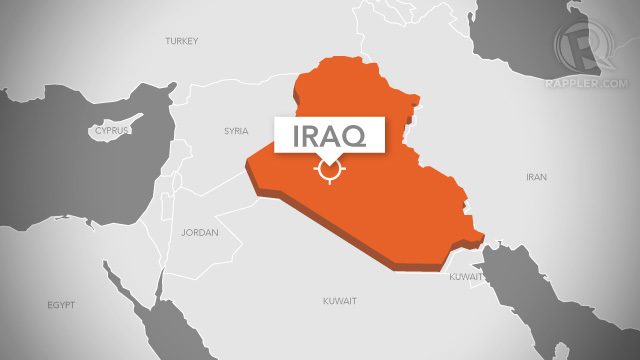SUMMARY
This is AI generated summarization, which may have errors. For context, always refer to the full article.

BAGHDAD, Iraq – Iraqi forces retook territory from the Islamic State (ISIS) jihadist group east of Ramadi on Saturday, May 23, commanders said, in their first counterattack since Anbar’s provincial capital fell a week ago.
A mosaic of anti-ISIS forces had for days been massing in the Euphrates Valley to ready for an offensive aimed at turning the tide on rampant jihadists.
The May 17 takeover of Ramadi was Baghdad’s worst defeat in almost a year while the capture three days later of the Syrian city of Palmyra positioned ISIS for a possible drive on Damascus.
Security officials said an operation was launched early Saturday to retake Husaybah, a town seven kilometers (4.5 miles) east of Ramadi in the Euphrates Valley, that ISIS had seized earlier in the week.
“The Husaybah area is now under full control and the forces are now advancing to liberate neighbouring Jweibah,” a police colonel told Agence France-Presse (AFP) from the front.
Anbar’s most prominent Sunni tribal leader, Sheikh Rafia Abdelkarim al-Fahdawi, deployed his forces, whose knowledge of the terrain is key, alongside fighters from the Hashed al-Shaabi, an umbrella for Shiite militia and volunteers.
The police colonel said the Husaybah operation also involved local and federal police, the interior ministry’s rapid intervention force as well as the army.
Stopping the rot
Swift action was seen as essential to prevent ISIS from laying booby traps across Ramadi, which would make any advance in the city more risky and complicated.
But government and allied forces were also keen to prevent further losses, as ISIS used its momentum after seizing Ramadi to take more land to the east of the city.
“What happened in Anbar is very similar to what happened last year in Diyala, Mosul, and Salaheddin,” said Ahmed al-Assadi, spokesman of the Hashed al-Shaabi (popular mobilization).
He was referring to the debacle of security forces when ISIS-led fighters swept across Iraq‘s Sunni Arab heartland in June last year, bringing Iraq to the brink of collapse.
Some Iraqi forces were criticized for avoiding battle during the fall of Ramadi, which led Prime Minister Haider al-Abadi to call in the Hashed al-Shaabi, which has some well-trained units but mainly adds numbers and determination.
He and Washington had opposed the mass deployment in the Sunni province of Anbar of militia groups with direct ties to Iran and a dubious human rights record.
However, the strategy of US-led coalition air strikes while the security apparatus gets revamped has failed to keep up with the pace of ISIS advances.
“At this time, the Hashed are Abadi’s best bet. I don’t think he has many options,” said Ayham Kamel, director for the Middle East and North Africa at the Eurasia Group.
Washington tried to remain upbeat after the loss of Ramadi and Palmyra, playing down the ISIS advance as a tactical “setback” and denying the US-led coalition was “losing”.
ISIS expansion
The jihadists, who now control roughly half of Syria, reinforced their self-declared transfrontier “caliphate” by seizing Syria’s Al-Tanaf crossing on the Damascus-Baghdad highway late Thursday.
Fabrice Balanche, a French expert on Syria, said “ISIS now dominates central Syria, a crossroads of primary importance” that could allow it to advance towards the capital and third city Homs.
The ISIS advance in both countries forced tens of thousands of civilians from their homes, sparking concern among humanitarian agencies.
The fall of Ramadi displaced at least 55,000 people, who join the more than 2.8 million people made homeless by fighting nationwide since the start of 2014.
The UN Security Council on Friday expressed deep concern for thousands of civilians trapped across the border in Palmyra.
The international community has also voiced alarm over the famed ancient city’s archaeological sites.
UNESCO chief Irina Bokova called the 1st and 2nd Century Palmyra ruins “the birthplace of human civilisation”, adding: “It belongs to the whole of humanity and I think everyone today should be worried about what is happening.”
ISIS on Friday also demonstrated its ability to strike beyond the heart of its “caliphate” when it claimed the suicide bombing of a Shiite mosque in Saudi Arabia.
According to government figures, the attack during weekly prayers in Qatif, in eastern Saudi Arabia, killed 21 people and left 81 wounded. – Ammar Karim, AFP/Rappler.com
Add a comment
How does this make you feel?
There are no comments yet. Add your comment to start the conversation.